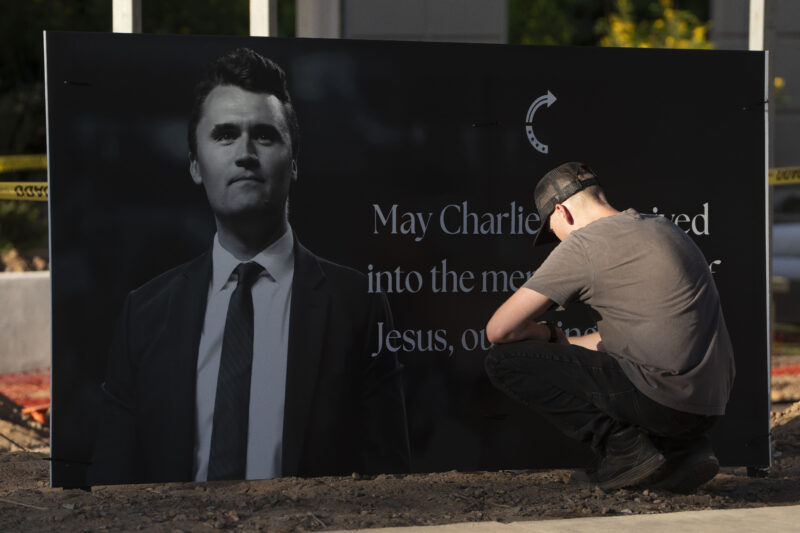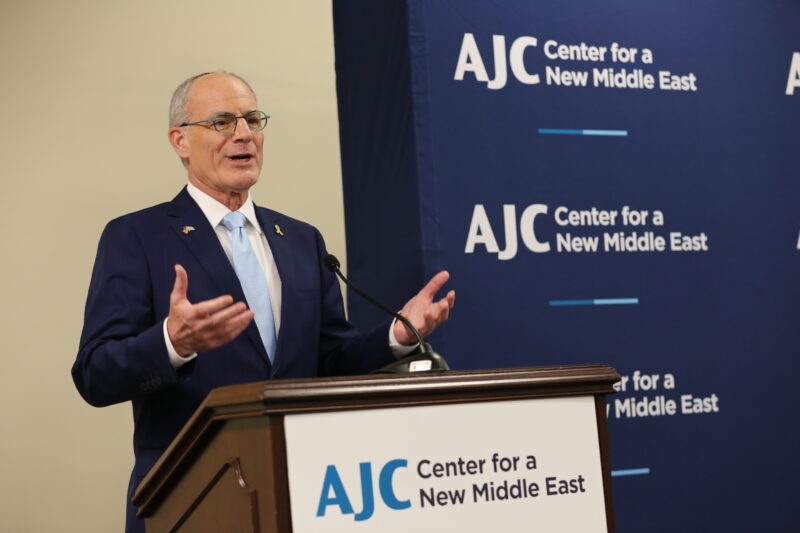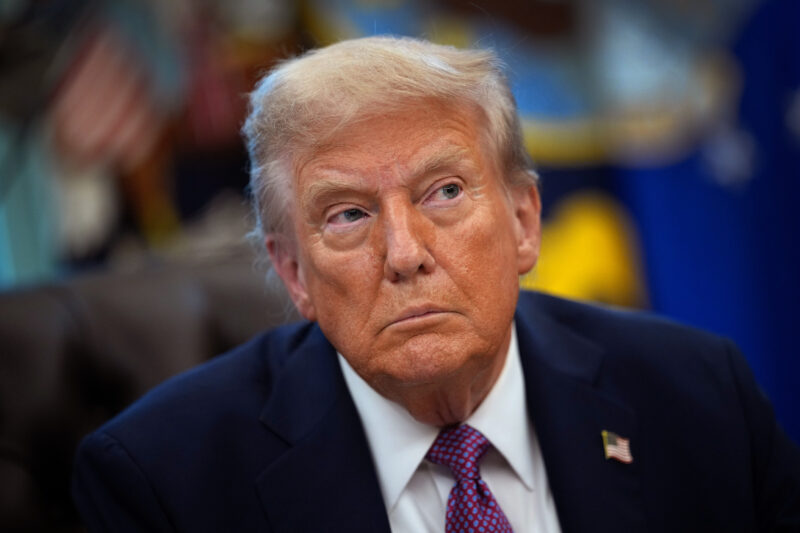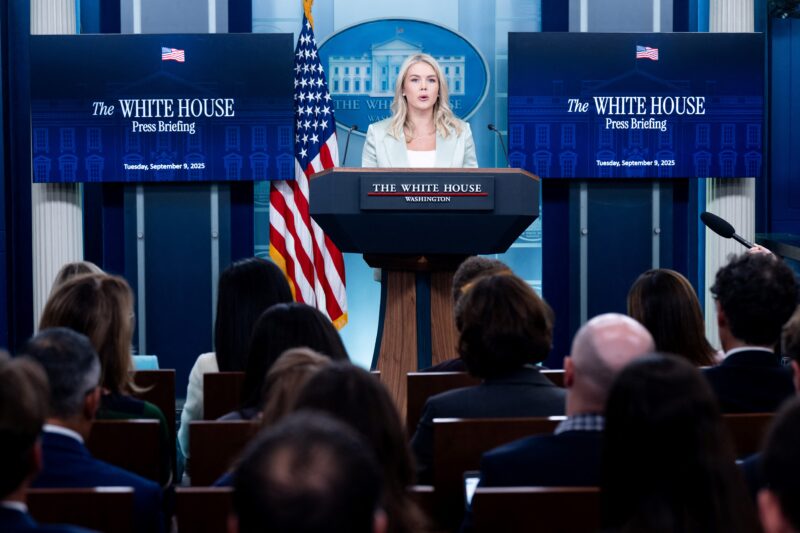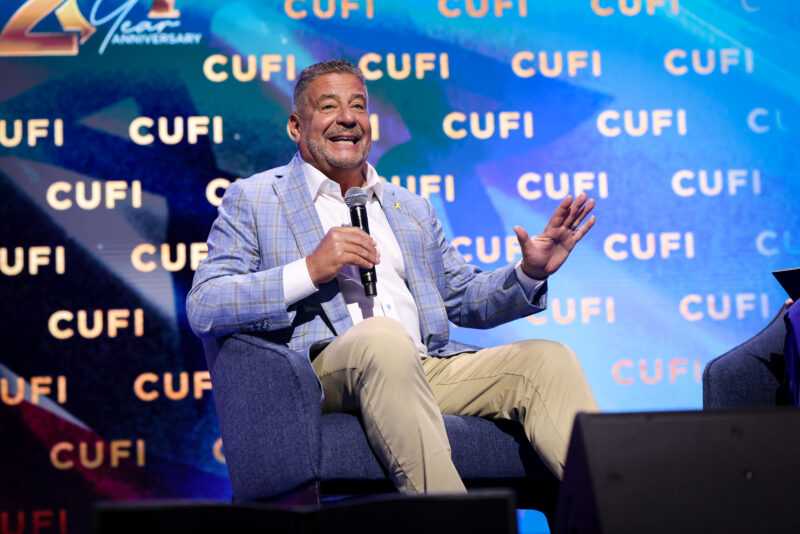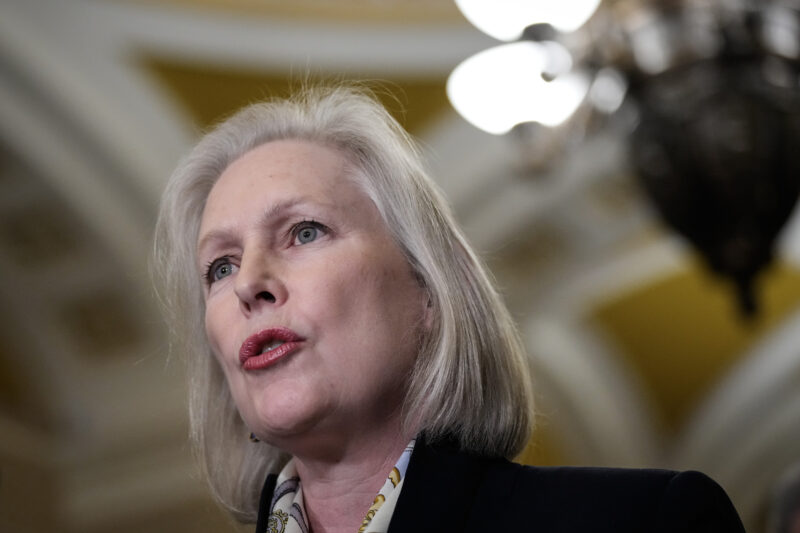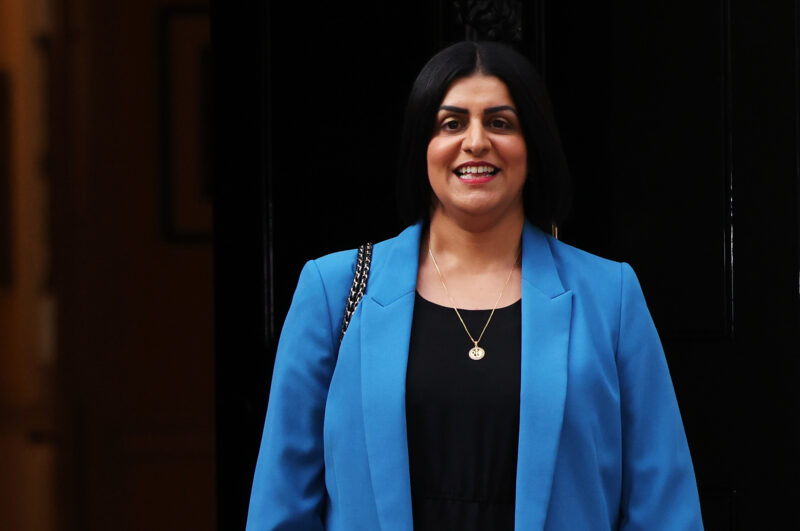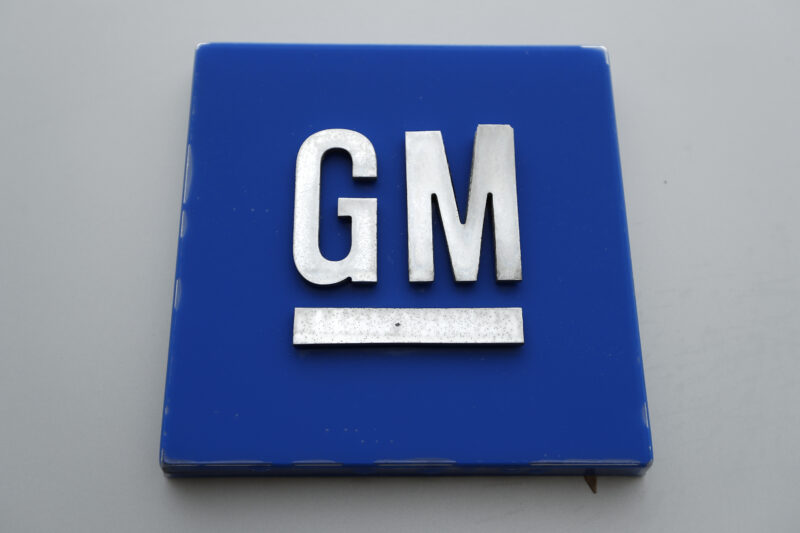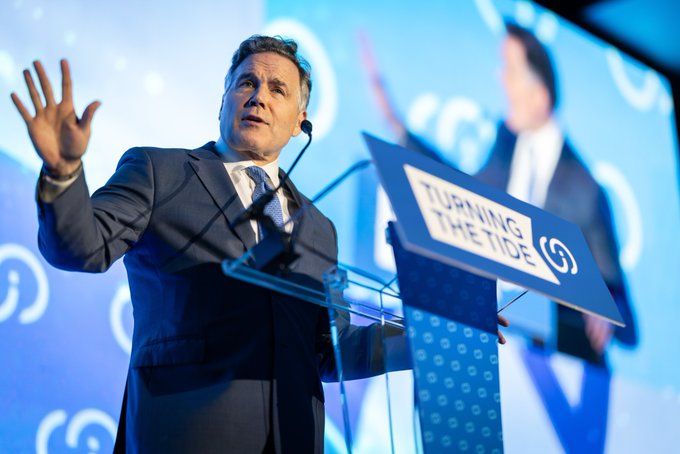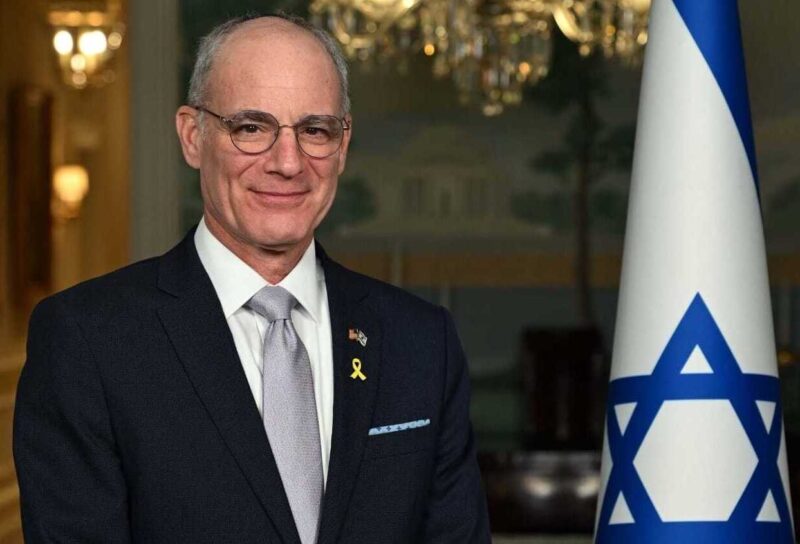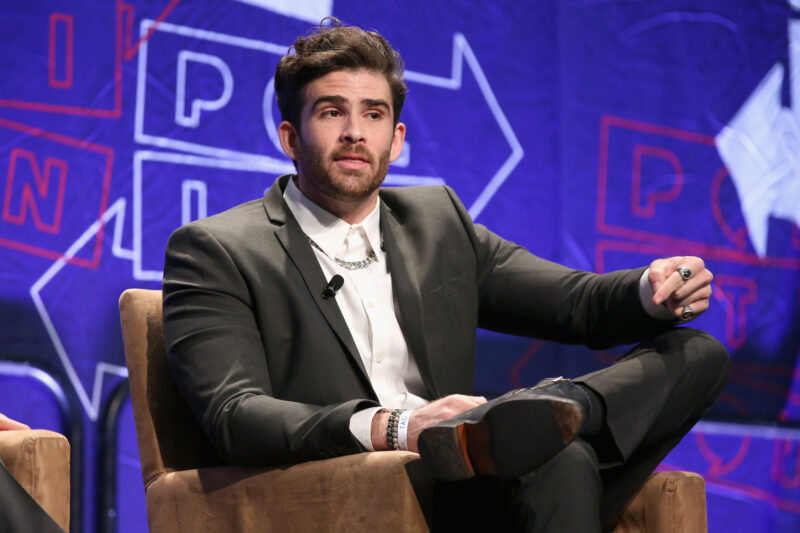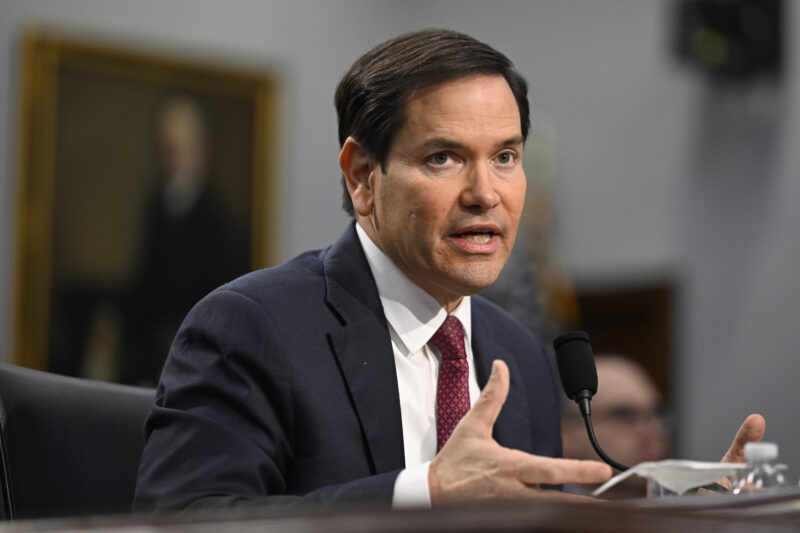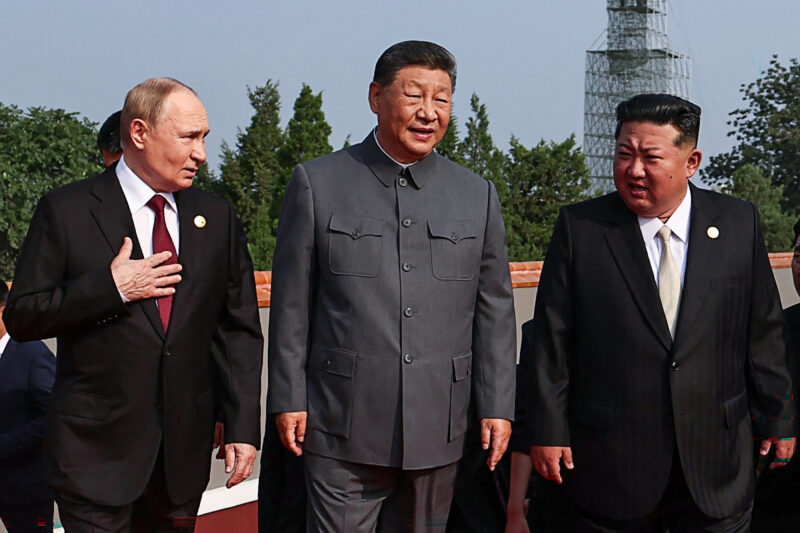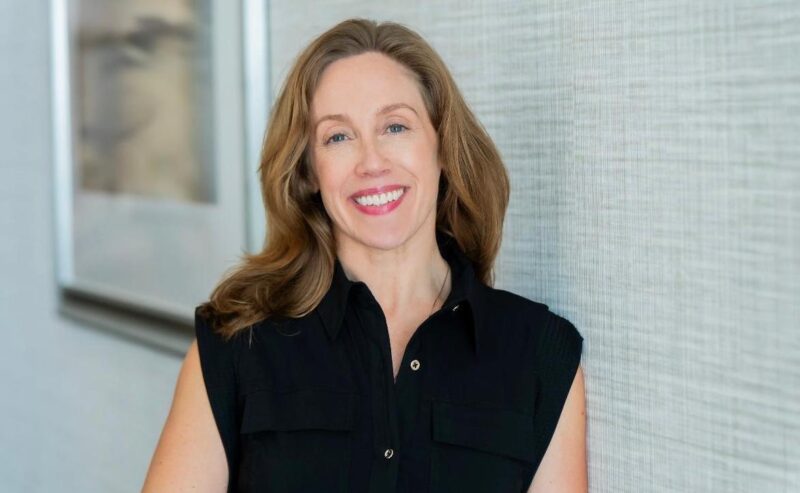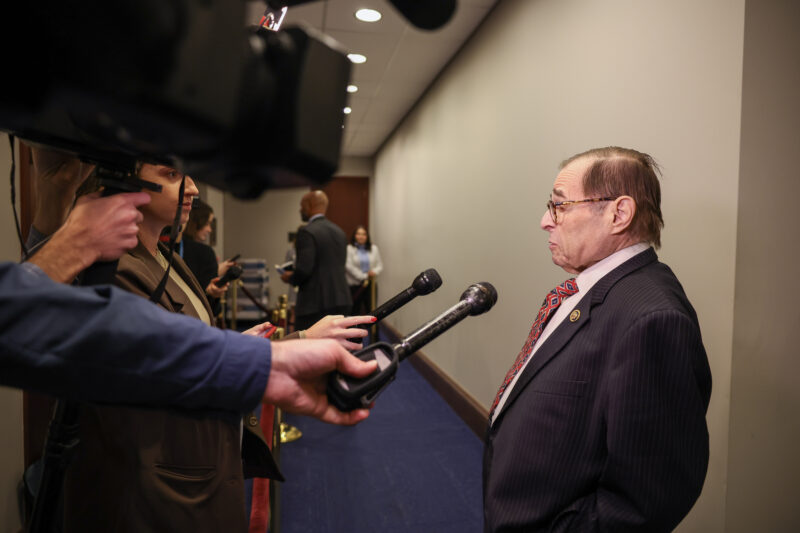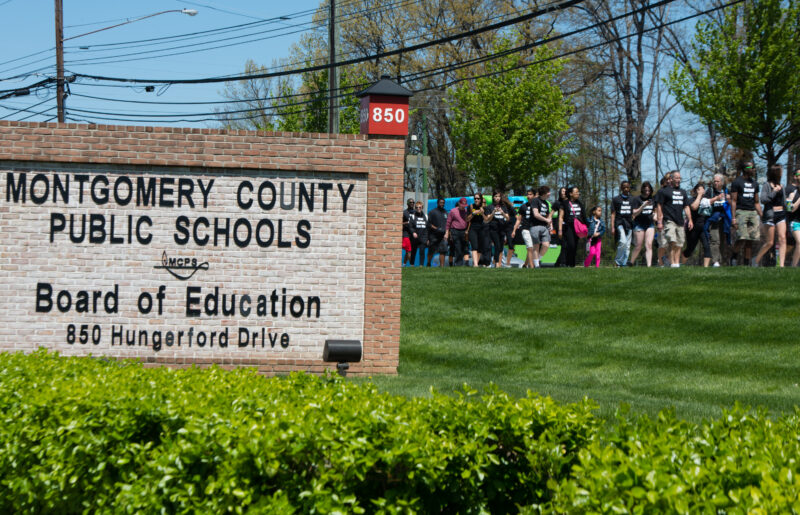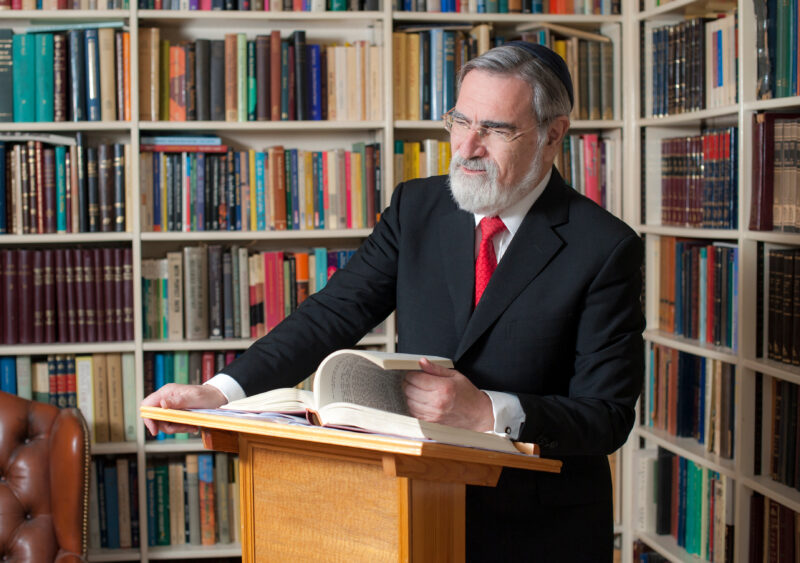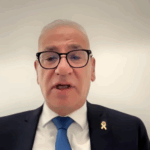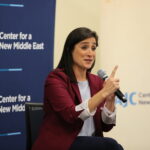Amb. Michael Herzog: Strong U.S.-Israel relationship ‘requires a long-term strategy’
Israel’s envoy to the U.S. also detailed how Washington and Jerusalem are cooperating on Iran-related issues

Ellen Wallop/Asia Society
Ambassador Michael Herzog
On this week’s episode of Jewish Insider’s podcast, Israeli Ambassador to the U.S. Michael Herzog joins co-hosts Rich Goldberg and Jarrod Bernstein. Herzog, who was appointed to the post in the summer of 2021 by then-Prime Minister Naftali Bennett and who has served under three prime ministers since coming to Washington, spoke about the Iran nuclear deal, the U.S.-Israel relationship and Israel’s judicial reform.
Below are condensed excerpts from the conversation:
Rich Goldberg: This week, you spoke to [the Haaretz-UCLA conference] and said a couple of very noteworthy things I wanted to touch on on Iran. First, what exactly do you mean when you say you see the U.S. and Israel much closer on Iran today? I think many of us who look at this on a regular basis say, “well, there still seems to be a strategic objective disconnect.”
Amb. Michael Herzog: When I arrived here 15 months ago, the U.S. was heading toward a nuclear deal with Iran, and actually got very close to a JCPOA [Joint Comprehensive Plan of Action] 2.0. And, of course, there was a difference of opinion between our government and the U.S. government, and talking about the previous Israeli government, but of course, also the current Israeli government. I must say that in Iran, there’s no opposition coalition in Israel, there’s a broad consensus, and we were concerned that the U.S. is entering a weak deal, weaker even than the original 2015 JCPOA. So when I look at where we were then and where we are today, as I mentioned publicly, the deal is off the table for now — it’s not dead, but it is off the table for a variety of reasons.
So taken together, this created an environment that does not lend itself to going back to a deal with Iran. The U.S. strategy, vis-à-vis Iran over the last decade-plus, was looking at Iran through the prism of a nuclear deal, trying to reach a nuclear deal, trying to revive a nuclear deal, and now that the deal is off the table, we are into a dialogue, very close dialogue, with the U.S. administration — we just had [on March 6], a group of Israeli experts doing a strategic dialogue with the administration about Iran — and what we are discussing is holistic strategies that factor in, of course what’s happening in the nuclear field, but other factors as well: Iranian destabilizing activities in the region; the cooperation between Iran and Russia; the internal situation in Iran; and other factors as well. So when I say we are closer today, it is in the sense that we both understand that in the foreseeable future, there may not be a deal, much as the U.S. desires to have a deal, and we have to work on a holistic strategy. Things don’t stand still, that’s where we are. It doesn’t mean that we agree on everything, we see eye-to-eye on everything, but we were definitely closer today.
Jarrod Bernstein: What do you think would have to change, vis-à-vis the American position, for there to be a serious consideration of a nuclear deal? Or is it not just about nuclear now? Would any deal have to be broader and address, as you said, stabilization efforts, terrorist efforts, things like that?
MH: The way I see it right now, looking at the Iranian positions and looking at the U.S. positions, I see it very hard, increasingly hard, to bridge the gaps and go back to what’s called the JCPOA. I think they will have to, if diplomacy is an option or if circumstances arise that allow for resumed diplomatic effort, I would bet that the parties would not discuss this deal, maybe a deal, maybe some kind of a deal, all sorts of versions…But it seems to me extremely difficult to bridge the gaps between the two parties, and they will have to think about a different type of deal. People mentioned all sorts of options: less for less, more for more, freeze for freeze — I don’t want to analyze it, but we talked about different options. For us in Israel, we never said that we are against diplomacy, per se, but I think if I had to single out one element, which was most troubling for us, back in 2015 and now when the U.S. was negotiating a new deal with Iran, it is the sunsets. And I certainly hope that if the parties go back to the table at one point, the deal that we discuss will not include such a similar model of sunsets as were previously used.
RG: Obviously, in the last government, we had a centrist government, left-of-center in some ways, [with a] diverse Arab party involved, and there was still BDS, there were still critics of Israel, there was still the anti-Israel lobby in America. And now we have a right-wing government, and I think it could be easy for somebody to say, “they hated us when we had Bennett and [Yair] Lapid, they hate us when we have [Prime Minister Benjamin] Netanyahu, it’s not about what government we have, they just hate Israel,” you know, and “This is our country, we live here, this is our politics, keep out of this.” At the same time, though, when you hear a Mike Bloomberg, when you hear a major American figure, a major leader of the Jewish community, rabbis, speaking out, does that have an impact on the government in a different kind of way?
MH: To me, it indicates that those people, almost all of them, deeply care about Israel. They’re entitled to their voices and thoughts and concerns, and their voices are heard back home. I have no idea how the debate over judicial reform will end. I know that there are behind-the-scenes efforts to bring about a solution, as I said, that most Israelis will feel comfortable with. And voices from America or from world Jewry are heard in Israel and people understand that. So, the only thing I tell people is, first, don’t be judgmental before there is an outcome. OK, we are in the middle of that debate. We are in the middle of that process. And don’t inject yourself into the internal Israeli debate with a judgmental point of view before we have an outcome. You want to raise concerns, questions or some warning, all is well, but be careful [in] the way you air it and don’t be judgmental before we reach a certain outcome that you can judge. The second thing I say, and it relates to what you said, is, that we are still surrounded by enemies and we are still subjected to a campaign of BDS, and our enemies do not distinguish between those who support judicial reform and those who oppose judicial reform, left and right, they just don’t want to ask to be there, and we have to be aware of [that]. I say to those who criticize the State of Israel, that criticism is legitimate if you want to criticize certain policies, but do not cross the line of joining the hands of providing backwind to those who want to delegitimize us, cast a question mark over our very right to exist as a nation-state of the Jewish people. And that’s a very fundamental point, which I make to everybody.
JB: Ambassador, how do you assess the state of Israel-Diaspora relations today?
MH: There are challenges. I can speak about Israel’s relations with the U.S. Jewry. I don’t want to talk about the rest of the world, I’m responsible for the U.S., I’ll talk about the U.S. There are definitely challenges. A lot of them have nothing to do with us directly, it means they emanate from developments here within the U.S. diaspora, be it distancing from Israel, intermarriage, issues of education and Jewish education, so on. But some of it has to do with the interaction with Israel, the way they look at Israel. We get a lot of questions about the relations between state and religion in Israel, Israel’s attitude towards non-Orthodox communities, of course, judicial reform and what’s happening with the Israeli-Palestinian scene. I am more focused on the young generation, because I think the bigger problem is among the young. And I’m trying to foster some initiatives about engagement, about programs together, about bringing them to Israel to see Israel’s reality with their own eyes — I think it’s one of the most powerful tools that we have, to engage with the Jewish community. I’m not trying to paint a rosy picture as if there are no challenges. There are challenges. I think it requires a long-term strategy on our part, and I think we shouldn’t be alone in this. We should work together with partners here in the U.S. within the Jewish establishment, outside of the Jewish establishment. I definitely think we can and should do more, and I’m trying to push in that direction.
Bonus lightning round: Favorite Yiddish word or phrase? “Before I came here, a friend of mine told me, ‘There will be moments when you will be very upset, people will enrage you, and you’re a diplomat, you’re supposed to make keep a poker face,’ but there is when you are really upset with someone, there is a Yiddish saying, which I was taught as a young person by a family member, I will not name that family member, but that saying is, ‘mine tuchus aun deyn punim etsvay machatunim, my ass and your face are two machatunim.’” Favorite guest for Shabbat dinner? “I recently had a Shabbat dinner with two members of Congress from opposing parties who never spoke to each other before they came to my home, and they spent three hours talking to each other about very important issues. So they were certainly favorite Shabbat guests.” Favorite Israeli wine? “My favorite Israeli wine is called Argaman. Argaman in Hebrew is a type of reddish color. We have a specific type of grape in Israel, which is unique only to Israel, nowhere in the world can you find it. It is called Argaman, and that wine is an excellent Israeli wine, which I like to serve my guests at Shabbat dinners. Favorite Israeli president who you are not related to? “I have very high regard for our first president, Chaim Weizmann. Not necessarily for his role as president, but for his role before becoming president in leading the Jewish establishment for many years, in bringing about the Balfour Declaration and in working with world powers to advance the cause of the self-determination of the Jewish people in our own ancestral homeland, so for that I hold him in high regard.”




